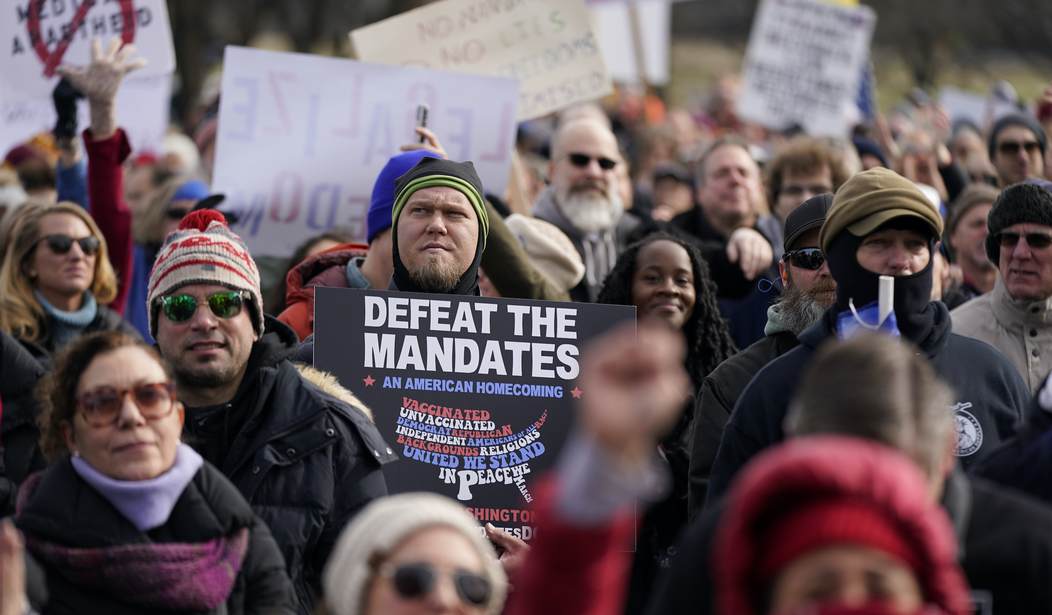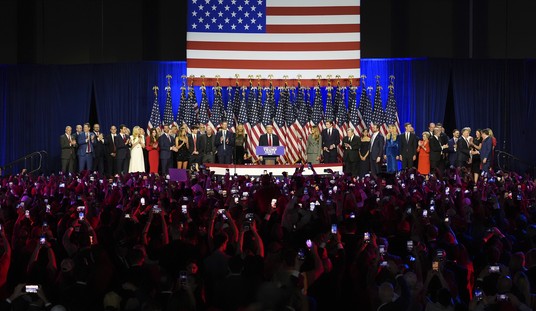The Supreme Court decided last month that the Biden administration’s rule mandating vaccinations for workers at companies who employ more than 100 people was outside the scope of authority for the Occupational Safety and Health Administration.
In short, OSHA had overstepped its authority. Accordingly, the agency announced on Tuesday that it was withdrawing the rule — at least temporarily.
“The U.S. Department of Labor’s Occupational Safety and Health Administration is withdrawing the vaccination and testing emergency temporary standard issued on Nov. 5, 2021, to protect unvaccinated employees of large employers with 100 or more employees from workplace exposure to coronavirus,” the agency said in a statement.
Here’s the catch: OSHA had issued the rule under its “emergency authority” — a catchall phrase for federal agencies that allows them to do just about anything they please unless someone stops them.
In this case, the Supreme Court slapped them down. But there’s nothing that says OSHA can’t try to make the mandate a permanent rule. It would take a lot longer — at least a year, maybe two. And that doesn’t include any challenges to the rule in court.
But the process would continue to grind forward. And getting rid of a permanent federal rule is a lot harder than getting rid of a temporary one.
“Although OSHA is withdrawing the vaccination and testing ETS as an enforceable emergency temporary standard, the agency is not withdrawing the ETS as a proposed rule,” the statement said. “The agency is prioritizing its resources to focus on finalizing a permanent COVID-19 Healthcare Standard.”
OSHA’s move to continue the effort to make the mandate a permanent rule drew the ire of First Liberty Institute, which represented three religious ministries to challenge the mandate.
“The Supreme Court made it clear that the President Biden administration’s attempt to federalize the nation’s workforce is blatantly unconstitutional,” First Liberty Institute president, CEO and chief counsel Kelly Shackelford said of the announcement in a statement. “OSHA had no choice but to withdraw its unlawful ETS, but it needs to completely put an end to this dangerous government overreach. We will continue to fight on behalf of our clients and the American people to protect them from being forced to violate their faith.”
Note that the Supreme Court did not comment on the constitutionality of the mandate itself, but only on the fact that, by issuing it, OSHA had exceeded its statutory authority. OSHA’s mandate to protect workers is broadly drawn and it’s been exceedingly rare for the high court to judge the agency’s worker protection rules unconstitutional.
That said, the proposed rule has several problems, including the very basic fact that Congress has not passed a law requiring a nationwide vaccine mandate for workers.
The first problem with the vaccine-or-test mandate is that Congress has said nothing about one. Instead, it is a federal agency, composed of unaccountable bureaucrats, that has promulgated the mandate. This is problematic because federal agencies sit uncomfortably within the constitutional framework: They are generally considered to be part of the executive branch, but the executive branch is only given the power to enforce—not to make—law. And no one denies that the vaccine mandate has the force and effect of law; it currently threatens the livelihood of millions of American workers.
Indeed, federal agencies will exercise their authority to its fullest extent — and beyond — given half a chance. Efforts to “rein in the bureaucracy” have met with limited success. Each and every agency is run by people who consider themselves an independent kingdom. They are unassailable in their authority.
Business people have been complaining about OSHA’s arrogance almost since the agency was established in the 1970s. The fact is, the Supreme Court decision changes very little. OSHA will continue to work for a vaccine mandate until a chief executive tells them to stop.










Join the conversation as a VIP Member